| |  | | | Gaza's Clans: The Only Alternatives to Hamas; Latest on Iran By Winfield Myers ● Oct 15, 2025 Smart Brevity® count: 8.5 mins...2279 words In a detailed study of Gaza's clan architecture, Gregg Roman makes the case that they provide the only workable alternative to Hamas's resurgence. Recent U.S. permission for Hamas to conduct security operations in Gaza represents "a catastrophic strategic error that undermines the long-term objective of excising the terrorist organization from Gaza's governance." Gadeer Kamal-Mreeh and Eric Navarro argue that the U.S. should adopt Israel's "zero-trust doctrine" and aim to win wars "without regard to borders." We follow with seven articles on Iran. Gregg Roman lays out a plan for strangling the regime "without firing a shot." Saeid Golkar describes Supreme Leader Khamenei's plans for surviving the "snapback sanctions": domestic repression without concern for the population's well-being. Dalga Khatinoglu's two articles examine the economic fallout from the U.N. sanctions and the devastation wrought by high inflation on food staples. Additional articles by Saeid Golkar, Mardo Soghom, and Erfan Qaneei Fard round out this issue. | | Gaza's Clan Architecture: The Only Alternative to Hamas's Resurgence 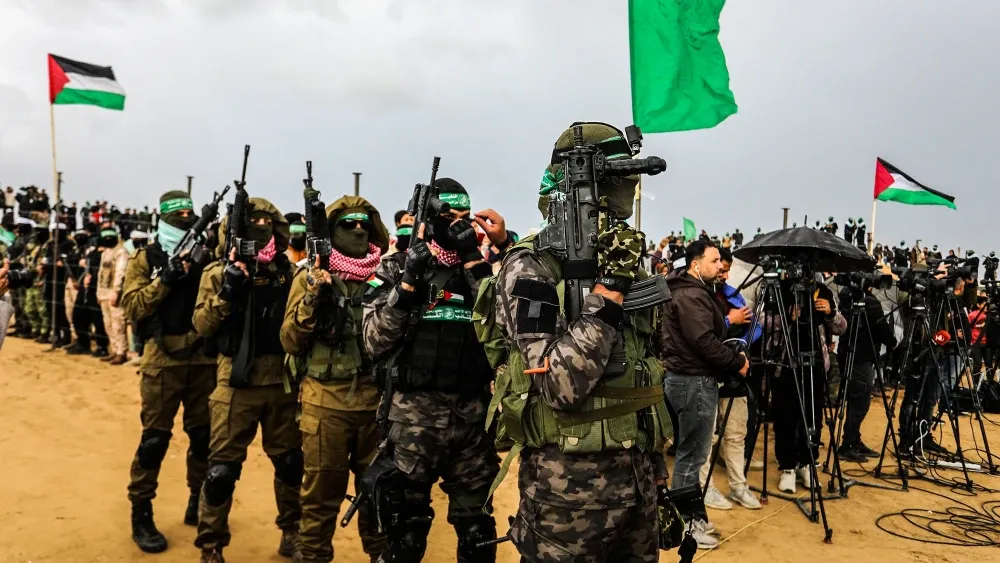 By: Gregg Roman The October 13, 2025, announcement that Hamas has received American approval to conduct security operations in Gaza represents a catastrophic strategic error that undermines the long-term objective of excising the terrorist organization from Gaza's governance. Why it matters: This move contradicts the long-term goal of removing Hamas from governance. -
If Hamas successfully transforms its temporary security role into permanent authority, the precedent validates terrorism as a successful long-term strategy. -
The decision undermines the 20-point peace plan by inadvertently reinforcing Hamas's position. The backdrop: Despite military setbacks, Hamas retains substantial resources. -
Approximately ten to fifteen percent of its rocket arsenal remains intact. -
The group has recruited 15,000 new fighters, maintaining its organizational integrity. Advantages of clan rule: Clan-based governance offers a pragmatic alternative to Hamas's rule. -
Clans provide community-based leadership with a focus on economic prosperity and social cohesion. -
Their deep-rooted social structures enable effective administration and conflict resolution. -
Clans prioritize economic development and humanitarian support, fostering stability and growth. What's next: The framework's success requires recognizing that peace in Gaza will be built not with the partners we wish existed, but with the traditional structures that command loyalty, control territory, and possess the pragmatic orientation necessary to choose prosperity over perpetual conflict. To read the full article, click here. | | The United States Should Adopt Israel's Zero-Trust Doctrine 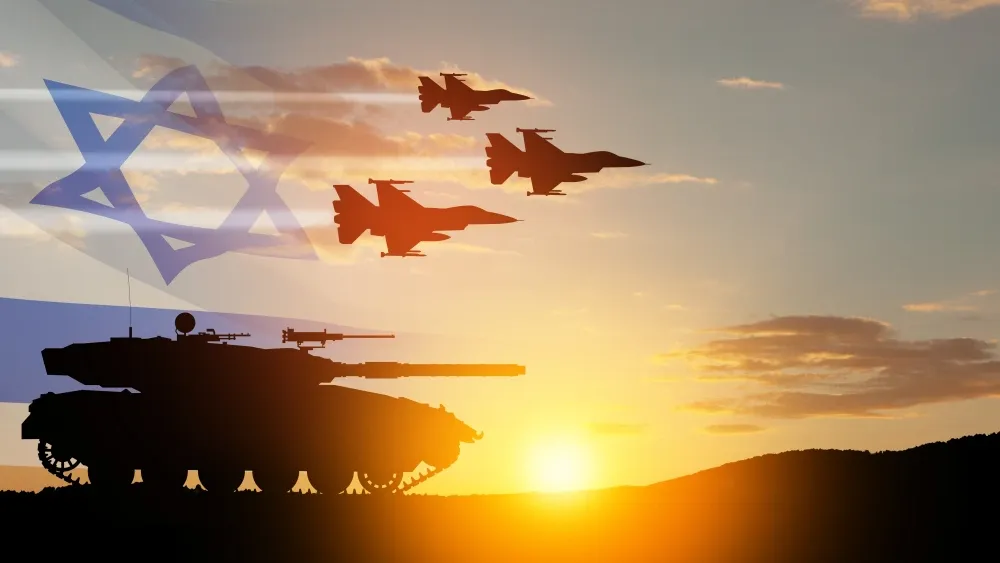 By: Gadeer Kamal-Mreeh and Eric Navarro Since October 7, 2023, Israel has engaged in its most complex war, fighting across six fronts: Gaza, West Bank, Lebanon, Syria, Yemen, and Iran. Why it matters: Israel's new zero-trust doctrine signals a commitment to eliminating threats at their earliest stage. Strategic impact: Prime Minister Netanyahu has transformed into a leader unafraid of direct conflict with Israel's most dangerous adversaries. Learning from history: Arbitrary battlefield boundaries have historically allowed enemies to adapt and prevail. -
Israel's disengagement from Gaza led to Hamas's buildup, culminating in the October 7, 2023 attacks, underscoring the need for a comprehensive regional strategy. What's next: The U.S. should join Israel in targeting adversaries like Iran's regime with direct action. -
Precise and public threats, including sanctions, cyber-attacks, and military action, are intended to deter aggression and stabilize the region. -
If the United States seeks strategic victory over these adversaries, it must do the same—without regard to borders. To read the full article, click here. | | ICYMI: Israel Insider with Ashley Perry  The return of Israeli hostages marked an emotional turning point—and the clearest sign of Donald Trump's renewed influence in the Middle East. His intervention pushed Israel toward a fragile peace that trades withdrawal for relief, as Hamas reasserts control in Gaza and global leaders remain hesitant to condemn it. With Netanyahu absent from the talks, Israel's strategy and Hamas's future hang in the balance. Has Israel traded security for symbolism? Can Hamas be disarmed through diplomacy? What comes next for Gaza and the region? Ashley Perry is an advisor to the Middle East Forum's Israel office. He served as adviser to Israel's minister of foreign affairs and deputy prime minister in 2009-15, and has also worked with Israel's Ministers of Intelligence, Agriculture and Rural Development, Energy, Water and Infrastructure, Defense, Tourism, Internal Security, and Immigrant Absorption and as an advisor to The Negev Forum. Originally from the U.K., he moved to Israel in 2001. He holds a B.A. from University College London and an M.A. from Reichman University (IDC Herzliya). To watch the full podcast episode, click here. | | The Strategic Strangulation of Iran 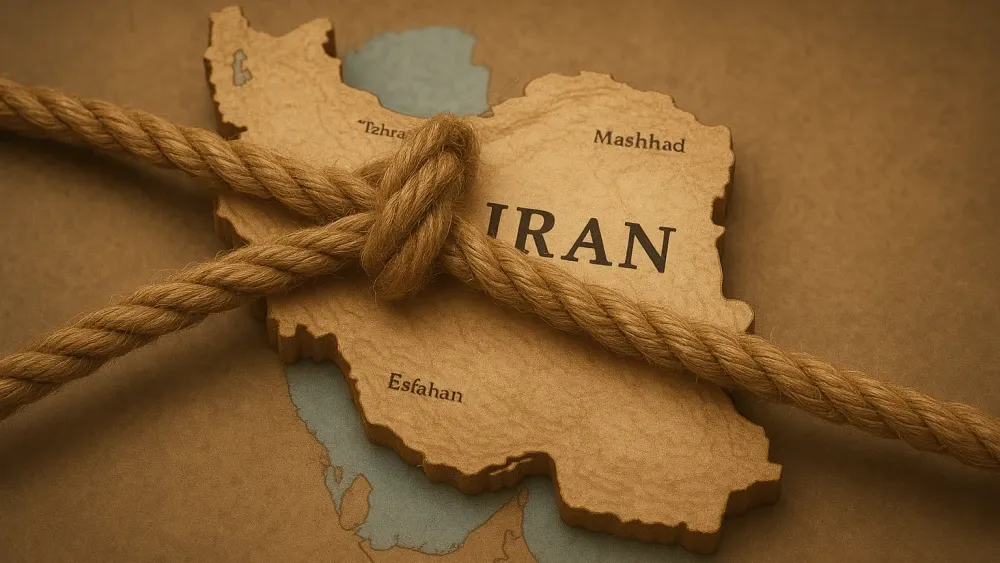 By: Gregg Roman The Treasury Department's latest sanctions target Iran's weapons procurement networks amid the regime's escalating vulnerability. Why it matters: Iran faces systemic collapse with a plummeting GDP and soaring inflation, signaling the need for intensified pressure. Strategic implications: Despite internal collapse, Iran's military advancements pose a significant threat to regional stability. Connecting the dots: Iran's military capability relies heavily on Chinese supply chains. What's next: A multi-faceted strategy is needed to exploit Iran's weaknesses and prevent further military escalation. To read the full article, click here. | | Tehran's Dual Strategy for Surviving Snapback 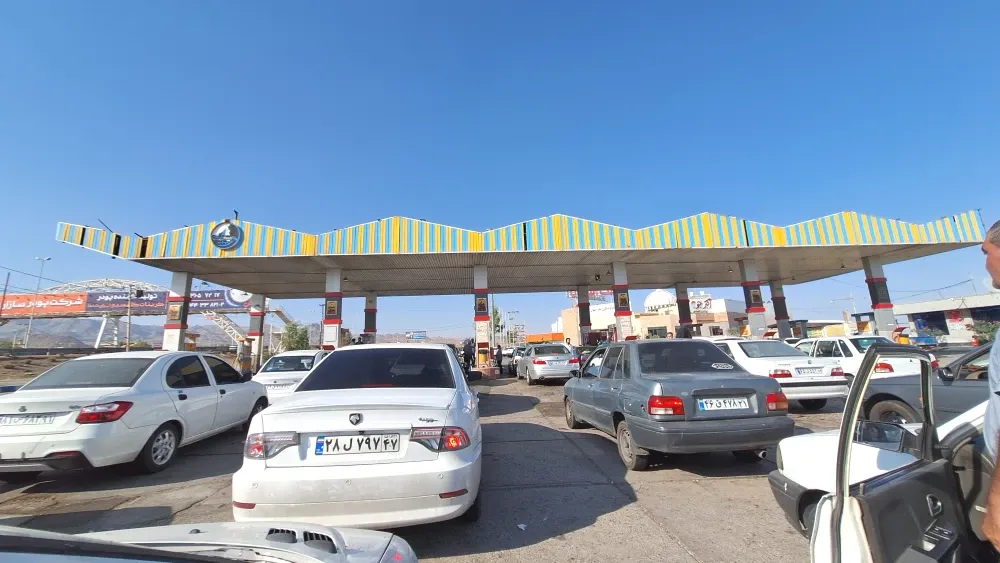 By: Saeid Golkar On August 28, France, Germany, and the U.K. triggered the U.N. snapback, reinstating pre-2015 sanctions against Iran, despite Russian and Chinese opposition. Why it matters: The snapback reintroduces stringent restrictions, leading policymakers to speculate on Tehran's next moves. Strategic patience: Tehran's restraint highlights a preference for unity over confrontation to maintain regime stability. Internal dynamics: Supreme Leader Khamenei emphasizes elite unity, balancing repression with controlled concessions to manage social pressures. Foreign policy implications: Iran's internal focus on stability influences its cautious approach to foreign policy, avoiding provocations that could lead to military conflict. -
Tehran's strategy involves leveraging its regional alliances while maintaining a defensive posture to deter external threats. -
By emphasizing resilience, Iran aims to project strength abroad, countering narratives of vulnerability. To read the full article, click here. | | Despite Iranian Denials, U.N. Sanctions Snapback Will Hit Economy Hard 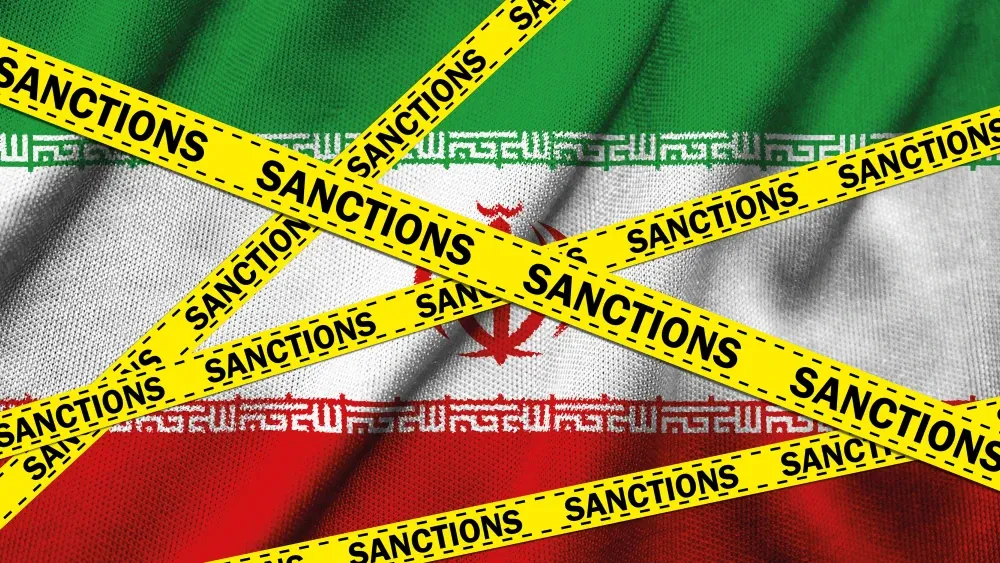 By: Dalga Khatinoglu On August 28, 2025, France, Germany, and the U.K. triggered the U.N. snapback, reinstating sanctions due to Iran's JCPOA violations. Why it matters: The snapback reintroduces harsh restrictions, exacerbating Iran's economic woes. Economic impact: Iran's Chamber of Commerce warns of further currency devaluation and potential 90 percent inflation. Global implications: China's response to snapback sanctions could significantly influence Iran's economic prospects. Regional dynamics: Iran's attempts to navigate sanctions through alliances with China and Russia may only delay inevitable economic collapse. -
Iranian officials may bluster to both their own public and foreign diplomats, saying they do not fear snapback sanctions. If they are truthful, they are naïve; if they are lying, they are foolish. -
The economic figures do not lie. Iran's economy, already in dire straits, is about to get much worse. To read the full article, click here. | | Food Inflation Surges in Iran  By: Dalga Khatinoglu Despite official dismissal, food inflation in Iran surged to 58 percent in September, revealing the regime's mismanagement. Why it matters: The Iranian regime's manipulation of statistics masks the harsh reality faced by its citizens. With essential food prices skyrocketing, over half of Iran's population struggles to survive, spending 43 percent of their income on food. -
The cost of bread and cereals—the staple of Iranian households—has nearly doubled, and fruit prices have jumped by 75 percent. -
However, Islamic Republic officials and agencies have consistently manipulated livelihood-related statistics to portray a picture rosier than reality. Economic missteps: The rial's 20 percent depreciation and U.S. sanctions have compounded the crisis, with inflation potentially hitting 90 percent. Generational impact: As U.N. snapback sanctions take effect, Iran's youth face a bleak future. The bottom line: The ripple effects of this crisis will impact Iran for years to come. In June 2025, the Statistical Center of Iran reported a rise in student dropouts. -
Farshad Ebrahimpour, a member of Iran's parliamentary education commission, stated about two million students did not enroll last year, because economic difficulties prevented parents and students from reaching the registration stage. -
This will cement a generation's lost potential. To read the full article, click here. | | Iran's 'Conditional' Ratification of Anti-Terror Financing Rings Hollow 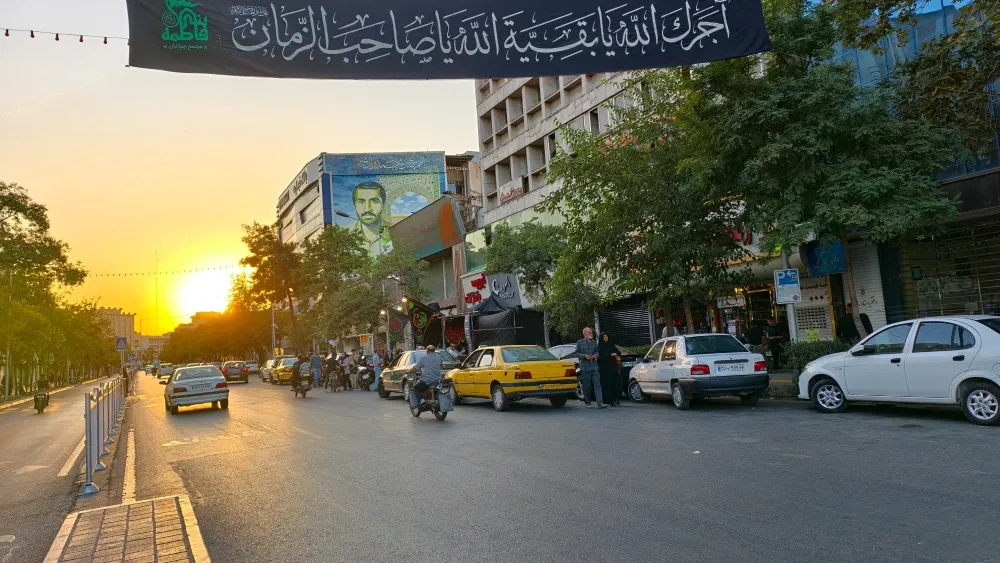 By: Mardo Soghom Under intense U.N. sanctions pressure, Iran ratified the Combating the Financing of Terrorism (CFT) convention on October 1, 2025, with "conditions" that undermine its efficacy. Why it matters: The Guardian Council—a constitutional watchdog—declared that the laws of the Islamic Republic supersede the provisions of the convention, turning ratification into lip service rather than a commitment of adherence. Economic fallout: The Financial Action Task Force's blacklisting has devastated Iran's economy, depreciating the rial by 120-fold since 2007. Political implications: Supreme Leader Ali Khamenei faces blame for steering Iran into ruin, with critics highlighting the regime's aging leadership. The bottom line: Life in Iran is going to become much more difficult as Iranians lose access to basic banking functions that once provided a small but important mechanism to keep their heads above water. To read the full article, click here. | | The Islamic Republic's War on Its Universities Is Accelerating 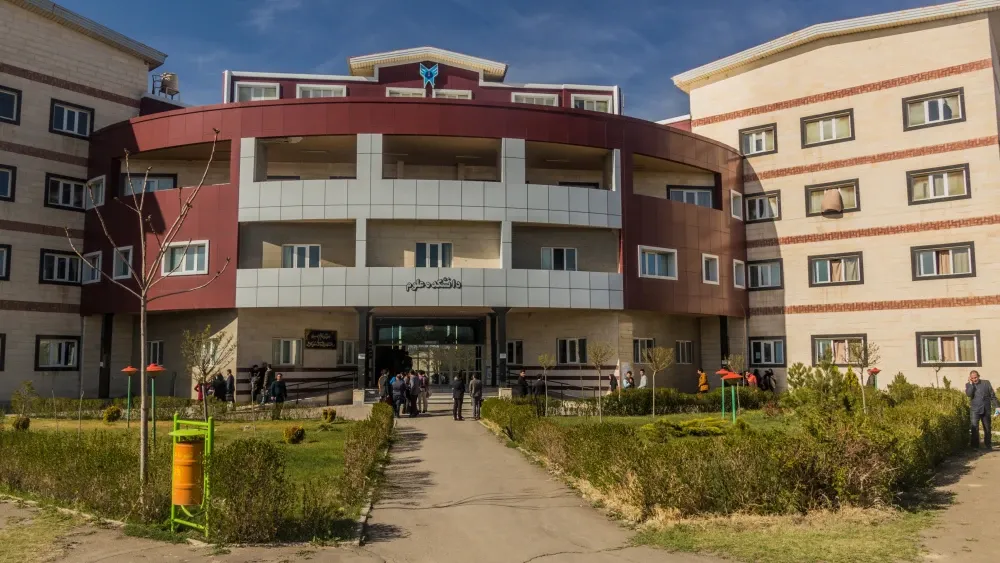 By: Saeid Golkar When Islamic Azad University summoned veteran professor Mehdi Zakarian for "supporting Western-oriented thinking," it reflected the Islamic Republic's ongoing war against intellectual freedom. In Iran, universities are not sanctuaries of inquiry, but battlegrounds where dissent is equated with subversion. Why it matters: Iran's universities are battlegrounds where the regime equates dissent with subversion, stifling academic freedom. Systemic repression: The regime's control extends to admissions, favoring regime loyalists and embedding ideological vetting in education. Future implications: The ongoing repression of intellectuals risks Iran's long-term development and global competitiveness. The bottom line: By silencing academics, Iran erodes its capacity for reflection and innovation, risking long-term intellectual stagnation. To read the full article, click here. | | The Islamic Republic's Propaganda Works If It Can Sow Doubt About Real Dissidents 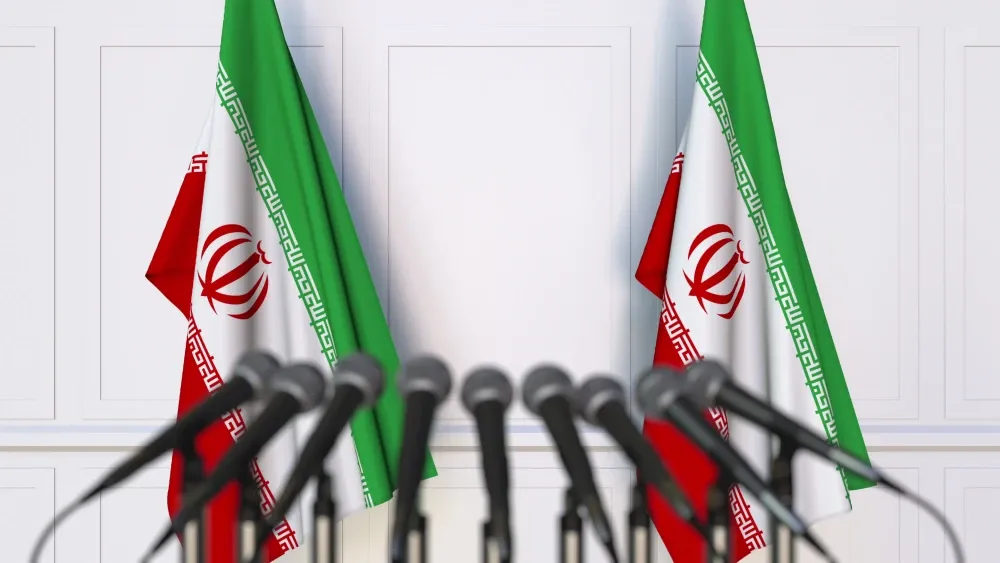 By: Erfan Qaneei Fard [Ed. note: the author contributed the essay summarized below from ICE detention in Texas.] On March 28, 2025, the author's detention by Immigration and Customs Enforcement (ICE) highlights how Iranian and Kurdish propaganda influence U.S. narratives and policies. He has lived in the U.S. since 2003, filed taxes, and has been in the process of obtaining political asylum since 2013. Authorities have not charged him with any crime. Why it matters: Earlier this year, activists abroad filed a lawsuit against Parviz Sabeti, a former Iranian security official, through a U.S. real estate attorney. The case presented no substantial legal claims. -
It advanced historical narratives against Iran's monarchist movement and sought to discredit opposition figures such as Crown Prince Reza Pahlavi. -
After the author discussed the case in an interview with Iran International TV, ICE detained him. Online networks spread misleading claims about his background and motives. -
Anonymous accounts distributed conflicting information, often drawing on outlets or individuals linked to regime-affiliated or separatist circles. Global influence: Iranian and Kurdish groups use information operations to sway Western media and policymakers. Policy implications: These actions weaken organized opposition and create confusion about representation. The bottom line: The author's experience underscores the need for vigilance against propaganda that endangers the innocent and influences high-level decisions. -
Open societies must recognize and resist these tactics to uphold justice and policy credibility. -
Propaganda is not harmless speech when it endangers lives and shapes decisions at high levels of policy. To read the full article, click here. | | Thank you for relying on the Middle East Forum for up-to-date analyses of the region. If you enjoyed this issue of the MEF Dispatch, please forward it to a friend. We invite you to use the comments feature to let us know your thoughts on the Dispatch and the issues we cover. Sincerely, Winfield Myers
Managing Editor, Middle East Forum
Director, Campus Watch | | | | Was this edition useful?  

Your email will be recorded and shared with the sender |        MEF, an activist think tank, deals with the Middle East, Islamism, U.S. foreign policy, and related topics, urging bold measures to protect Americans and their allies. Pursuing its goals via intellectual and operational means, the Forum recurrently has policy ideas adopted by the U.S. government.
Copyright © 2024 Middle East Forum, All rights reserved.
Our mailing address is:
Middle East Forum
1650 Market Street, Suite 3600
Philadelphia, PA 19103 | | | | | Powered by 
| | This email was sent by Middle East Forum via Axios HQ | | | |
0 коммент.:
Отправить комментарий